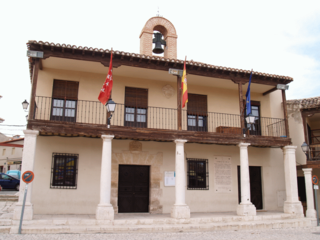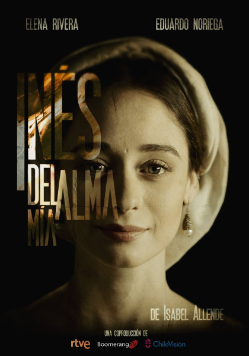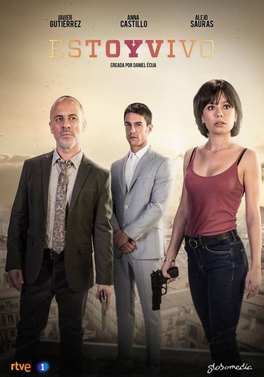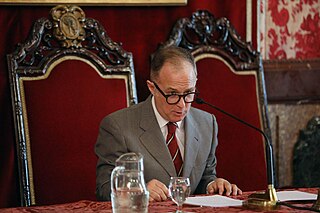Related Research Articles

María de la Paz Campos Trigo, known professionally as Paz Vega, is a Spanish actress. She became popular for her performance in comedy television series 7 vidas. Her film credits include Sex and Lucia (2001), Spanglish (2004), 10 Items or Less (2006), Madagascar 3: Europe's Most Wanted (2012), All Roads Lead to Rome (2015), Acts of Vengeance (2017), and Rambo: Last Blood (2019). She played the role of Catalina Creel in the 2019 television series Cuna de lobos.

The art of motion-picture making within Spain or by Spanish filmmakers abroad is collectively known as Spanish Cinema.

Luis García-Berlanga MartíMMT was a Spanish film director and screenwriter. Acclaimed as a pioneer of modern Spanish cinema, his films are marked by social satire and acerbic critiques of Spanish culture under the Francoist dictatorship. These include Welcome Mr. Marshall! (1953), which won the International Prize at the 1953 Cannes Film Festival, Plácido (1961), nominated for an Academy Award for Best Foreign Language Film in 1962, and The Executioner (1963), winner of the FIPRESCI Prize at the 24th Venice International Film Festival

Colmenar de Oreja is a town and municipality of the Las Vegas comarca, in the Community of Madrid, Spain. It was subject to a seven-month siege in 1139.

Mario Casas Sierra is a Spanish film and television actor. Known for his roles in Spanish cinema and television, he has received various accolades including a Goya Award, a Gaudí Award, and three Feroz Awards.

Carlos Elejalde Garay better known as Karra Elejalde, is a Spanish actor and occasional filmmaker.

Inmaculada Cuesta Martínez is a Spanish actress. She has starred in films such as The Sleeping Voice (2011), Three Many Weddings (2013), and The Bride (2015).

Aura Garrido Sánchez is a Spanish film and television actress. She has appeared in such films as Stockholm and the television series El ministerio del tiempo.

Nathalie Poza Maupain is a Spanish film, stage, and television actress. She is the recipient of several accolades including two Goya Awards, one Platino Award, and five Actors and Actresses Union Awards.

El ministerio del tiempo is a Spanish fantasy television series created by Javier and Pablo Olivares and produced by Onza Partners and Cliffhanger for Televisión Española (TVE). It premiered on 24 February 2015 on TVE's main channel La 1. The series follows the exploits of an investigative team in the fictional Ministry of Time, which deals with incidents caused by time travel that can cause changes to the present day.

Manuel Fernández Serrano, better known as Manolo Solo, is a Spanish actor.

Inés of My Soul is a 2020 historical drama streaming television series produced by RTVE, Boomerang TV, and Chilevisión based on the historical novel of the same name by Isabel Allende. The filming of the series began on 2 September 2019, and concluded in December 2019. A total of 8 episodes were confirmed for the series, which premiered on 31 July 2020 on Amazon Prime Video, solely in Spain. The episodes aired weekly on La 1 from 7 October 2020 to 25 November 2020. The episodes aired on Chilevisión from 14 September 2021 to 17 September 2021.

Estoy vivo is a Spanish crime television series with supernatural and comedy elements. Created by Daniel Écija and produced by RTVE in collaboration with Globomedia and Good Mood, it premiered on 7 September 2017 on La 1. Its fourth season premiered on 10 March 2021.
The Sonata of Silence is a Spanish period drama television series starring Marta Etura, Daniel Grao and Eduardo Noriega. It is an adaptation of the novel of the same name by Paloma Sánchez-Garnica. Produced by RTVE in collaboration with José Frade PC, it aired from September 2016 to November 2016 on La 1.

Carlos López Hipólito, better known as Carlos Hipólito, is a Spanish actor with a long stage career. He is perhaps most familiar to a television audience for performances in series such as Desaparecida, Guante blanco, Locked Up or Caronte, even though his most enduring television collaboration is his long-lasting voice work as old Carlos Alcántara in Cuéntame cómo pasó.

Libertad is a 2021 Spanish-Belgian coming-of-age drama film directed and written by Clara Roquet which stars María Morera and Nicolle García, also featuring Nora Navas, Carol Hurtado and Vicky Peña.
The Berlanga Awards, originally known as Valencian Audiovisual Awards, are the main film awards of the Valencian Community, Spain, presented by the Acadèmia Valenciana de l'Audiovisual (AVAV) and the Institut Valencià de Cultura (IVC), and celebrated annually.

Luis Bermejo Prieto is a Spanish actor and theatre director.

María Carlota Isasi-Isasmendi Paredes is a Spanish actress.
Villarriba and Villabajo are two fictional Spanish villages that serve as the setting for a series of advertising campaigns for Procter & Gamble's Fairy brand. Originally created in Spain in 1991 for Fairy dishwashing liquid, the campaign has been renewed over the years, expanded to other products of the brand and used in several international markets.
References
- ↑ Simón Ruiz, Alfonso (28 August 2014). "Fairy, el lavavajillas del pueblo de Villarriba". Cinco Días (in Spanish).
- ↑ ""Villarriba y Villabajo"". Berlanga Film Museum (in Spanish).
- ↑ Calleja, Braulio (23 May 1994). "Un pueblo de cine". La Vanguardia (in Spanish).
- ↑ "Colmenar de Oreja, el pueblo de las series de TVE". RTVE (in Spanish). 29 August 2013.
- 1 2 González Olaya, Vicente (13 October 1994). "Colmenar de Arriba y Abajo". El País (in Spanish).
- ↑ "Ganadores de la 4º edición de los Premios Unión de Actores y Actrices". Spanish Actors Union (in Spanish). 1 March 1995.
- ↑ "Los actores Ana Belén y Carmelo Gómez, premios Fotogramas 94". El País (in Spanish). 1 March 1995.
- ↑ "Premios TP de Oro 1994". Teleprograma (in Spanish). No. 1505. 4 February 1995.